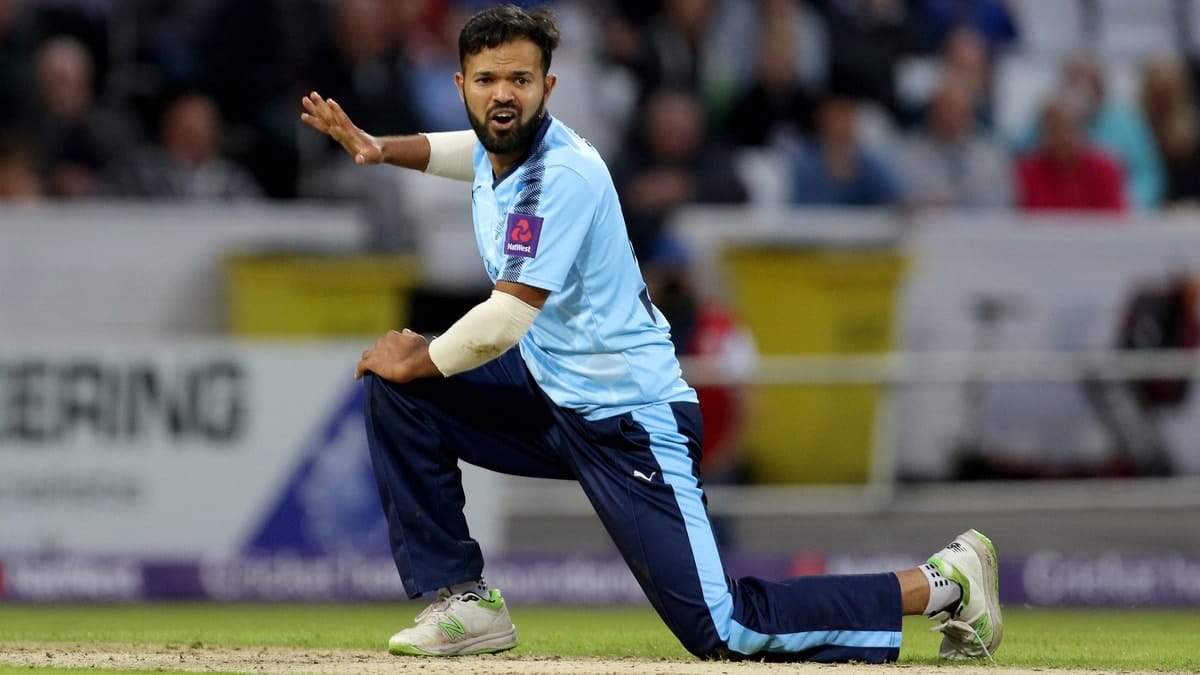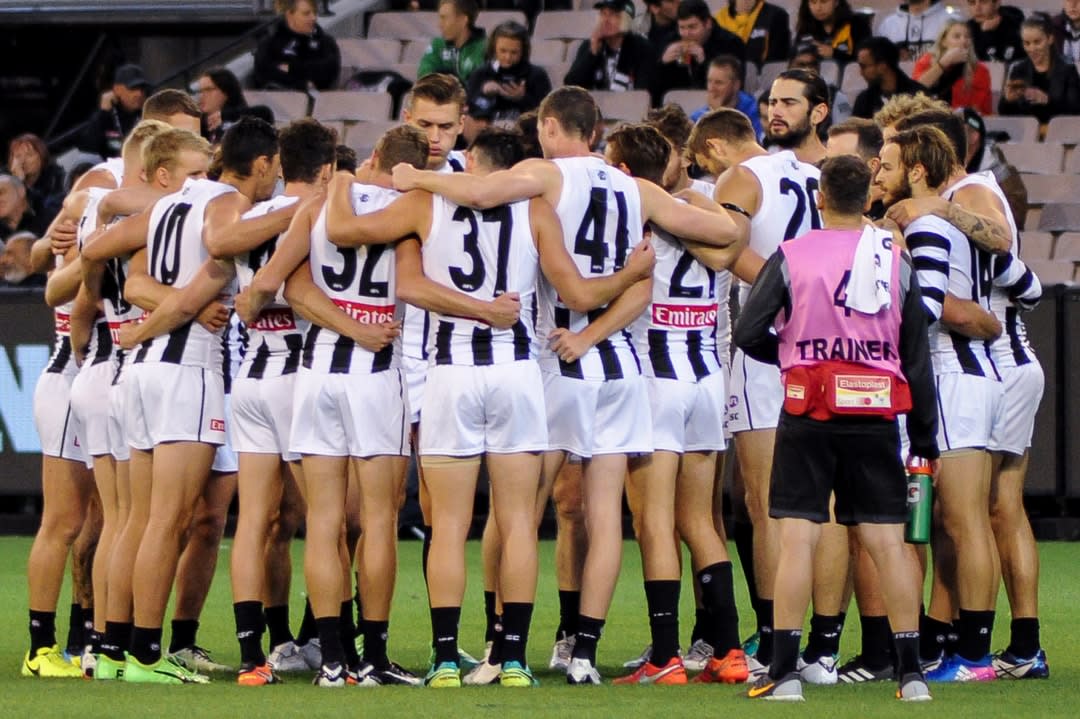
In mid-November, former Yorkshire county cricketer (and one-time captain) Azeem Rafiq testified before the House of Commons’ Digital, Culture, Media and Sport Committee about the systemic racism he had experienced while playing for the county.
Rafiq implicated not only the club’s management and coaching staff, but also England captain Joe Root, former captain and current cricket media “talking-head” Michael Vaughan, and ex-test batsman Gary Ballance.
Rafiq’s testimony was courageous and damning, and a warning to sporting bodies that they must be more interculturally aware of diversity and inclusion policies and practices.
As a junior, Rafiq was physically forced to drink alcohol and acculturated to practices and values that differed from those of his Muslim community. He was frequentlythe target of racial slurs, and with his fellow South Asian players was nicknamed “Kevin”, and “othered” by teammates and coaching staff.
As was evident from his testimony, this treatment reflected an ingrained racist cricketing culture, which isn’t surprising given Yorkshire’s near whites-only past, north England’s historic connections to the slave trade, and its exploitation and near-segregation of cheap South Asian labour.
Read more: How First Nations AFL players worked to fight racial vilification on and off the field
Until the 1992 signing of Indian batting maestro Sachin Tendulkar, a South Asian player had not represented the county. The situation has only marginally improved. Despite heavy concentrations of South Asians in south and west Yorkshire, few players have progressed into the county’s first-class ranks. Rafiq’s rise to the Yorkshire captaincy was an against-the-odds exception rather than the rule.
As Rafiq explained to the Commons’ committee, the rule entailed systemic “racism, discrimination and bullying” that deeply affected his wellbeing.
“[It] made me feel unwelcome and that I wasn’t a valued cricketer or member of the club. It undermined my confidence and ultimately my performance, and drove me to depression and suicidal thoughts.” All of this stemmed, he contended, from his “Pakistani ethnic origins”.
Predictably, Rafiq’s testimony provoked a backlash. Facebook messages surfaced containing anti-Semitic comments by him in 2011. They merely reinforced systemic racism’s seepage into English cricket’s wider culture.
Repeated taunts and abuse
South Asian and Caribbean players have been repeatedly subjected to racist taunts and abuse in dressing rooms and from English crowds, with Yorkshire’s Headingly to the fore.
Since Rafiq’s testimony, these players have begun to tell their stories of racial abuse and taunts that were frequently dismissed as ‘banter’ by white teammates. Their stories prompted Tom Harrison, the head of the England and Wales Cricket Board (ECB), to declare that racism was part of English cricket’s “dressing-room culture”.
Supporting Harrison’s claim was the almost audible silence from white players in response to Rafiq’s testimony. It revealed racism’s toll on the individual, as well as Yorkshire’s pervasive and unsafe workplace culture for players from South Asian backgrounds.

Sporting organisations must be more proactive in embracing the positive roles sport can play in championing cultural diversity and inclusivity. As a cultural phenomenon, sport taps into individual and group-based identities to create and sustain “affinity”-based communities.
Individuals should identify with, and feel part of, their particular sporting communities. At its best, sport should enhance individuals’ wellbeing and offer a sense of belonging.
Sportspeople and teams should represent their communities and be positive forces for championing diversity and inclusion, while mitigating the harmful effects of othering; that is, the process of perceiving individuals by one single group-based characteristic that renders them unfamiliar.
A textbook case of ‘othering’
Rafiq’s case provides a textbook example of othering, and isn’t far removed from recent incidents in Australian sport. During the 2020-21 cricket home series, Indian players were subjected to racist abuse from Australian crowds.
Numerous racist incidents have blotted the Australian Football League’s (AFL) copybook. Last season, Adelaide’s “Tex” Walker was fined and suspended for racially vilifying First Nations player Robbie Young. The incident prompted Walker’s Indigenous teammate, Eddie Betts, to declare: “It just keeps happening. I’m sick of it.”
Betts is correct. Like Rafiq, his comment poses the question of whether sport itself has a problem with systemic racism.
In the AFL’s case, the jury is still out. Early this year, the Collingwood Football Club faced similar accusations to those levelled at Yorkshire by Rafiq. The subsequent investigation resulted in the Do Better report commissioned by Collingwood, stemming from claims of racism against the club by former player Héritier Lumumba. The report vindicated Lumumba’s claims, and led to the resignation of the high-profile club president, Eddie McGuire.
A similar fate befell the Yorkshire president, Roger Hutton. It was another reminder that clubs need to act rather than pay lip-service to racism.

Yorkshire failed to act on a report into Rafiq’s allegations. Indeed, Yorkshire staff claimed Rafiq was the problem, not the club. He did not share “white rose values”.
Similar allegations were levelled at Lumumba. But as Do Better established, Lumumba was subjected to systemic racism, yet Collingwood has done little to implement the report’s recommendations.
Both cases indicate racism continues to fester in sport. Inclusion and diversity problems aren’t being seriously addressed by many major sporting organisations, including Australia and England’s most iconic football and cricket clubs.
Read more: Collingwood Football Club: What’s happened to the ‘Do Better’ report into systemic racism?
A change in mindset is needed to avoid othering future Rafiqs and Lumumbas. As long as sporting bodies relegate culturally inclusive initiatives to “tick-the-box” exercises, substantive change in tackling racism and implementing culturally safe and welcoming workplaces will not occur.
Seemingly, both cases show that sporting organisations are primarily concerned with protecting their brands and sponsorship revenues, and ensuring allegations of racism don’t get in the way of day-to-day operations.
Piecemeal changes may occur when sponsors withdraw, or threaten to withdraw, their support. More substantive change, however, requires all levels within these organisations to not only be guided by diversity and inclusion policies, but to commit to practices that will sustain culturally safe and inclusive workplaces.
Many major sporting bodies have introduced inclusion and diversity policies and specialists. Further, the AFL, NRL, Tennis Australia and Cricket Australia have supported new Australian Human Rights Commission guidelines in an attempt to stamp out fan-based racism at sporting events.
Though these initiatives are welcome, structural racism persists in many high-profile sporting organisations. While many publicly acknowledge the importance of inclusion and diversity policies, they have not implemented the necessary professional development initiatives to eliminate the deeply ingrained biases and behaviours that feed racism.
Until sporting organisations rectify these problems, future Rafiqs and Lumumbas will be subjected to racism, and forced to work in unwelcome and unsafe environments.





